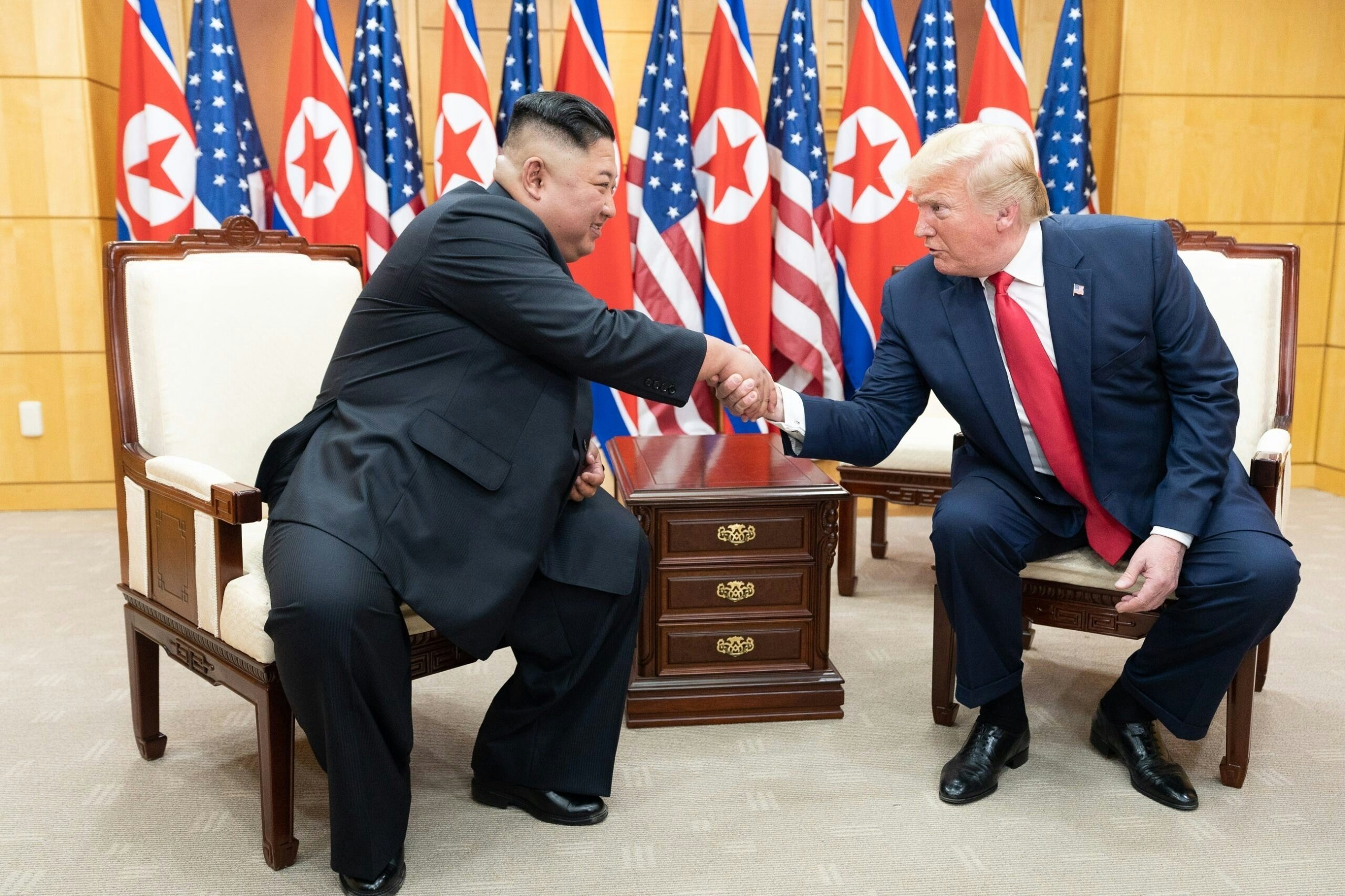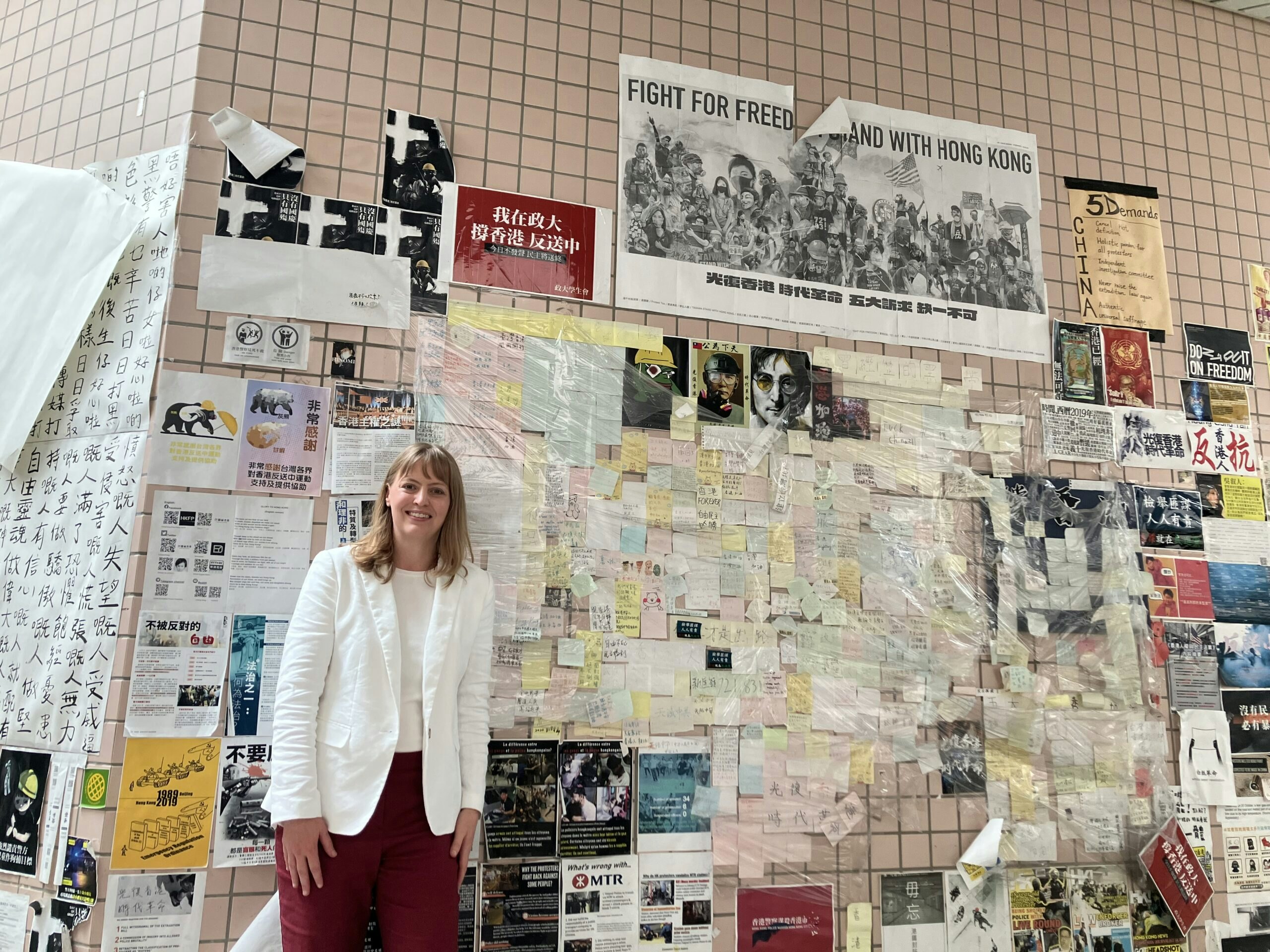Insights from Bush Institute global health expert Hannah Johnson
PEPFAR has saved 26 million lives around the world while keeping America safe and prosperous. While we continue to follow the latest developments, the Trump administration and Secretary of State Marco Rubio did the right thing by exempting crucial aspects of the program from a freeze in foreign aid funding.
PEPFAR – like all foreign aid programs – should be subject to federal review to ensure tax-payer dollars have the greatest impact. But funding must continue to ensure that people receive the life-saving treatment the program provides. We urge the Department of State to resume PEPFAR programming immediately so that those on treatment can receive uninterrupted care. In fact, it’s a matter of life and death.
PEPFAR is also especially vital for American foreign policy as China and Russia seek to exert further influence in Africa. Freezing funding for PEPFAR would be extremely detrimental to US-Africa relations, and provide Russia and China further inroads as they seek to expand their global reach.
A successful transition to country ownership of HIV programming will not happen overnight and consistent oversight is critical to ensuring PEPFAR implements lessons learned from these reviews. Through proper oversight, Congress has the opportunity to ensure PEPFAR maintains its efficiency and implements programming that will lead to a successful transition to country ownership.
PEPFAR is an extraordinary program, and it requires and deserves continual funding and support in order to continue saving lives.
Figure of the Month
10 million
That’s the number of cervical cancer screenings performed by the Go Further partnership for women living with HIV. Launched in 2018 by PEPFAR, the George W. Bush Institute, and UNAIDS, Go Further was created to eliminate cervical cancer among women living with HIV in sub-Saharan Africa. Cervical cancer is the deadliest form of cancer for women in the region, and those affected by HIV are up to six times more likely to develop the disease. As we celebrate this historic milestone, which has saved thousands of women’s lives, we must remain committed to advancing the early detection, prevention, and treatment of cervical cancer throughout the region.
Bush Institute Insights
This week we celebrate World Cancer Day. Our Go Further partnership has completed more than 10 million cervical cancer screenings for women living with HIV in sub-Saharan Africa. Of those screenings, approximately 68% represent women screened for the first time.
Hannah Johnson, Senior Program Manager for Global Policy at the Bush Institute, shares her two-minute take and policy considerations as the world inches toward 2030 – the target date for controlling cervical cancer and the sustainable development goal to end HIV/AIDS as a public health threat. They include:
- Congressional support for – and continuation of – PEPFAR would ensure active oversight of the program by requiring PEPFAR to advance and sustain its results, address gaps, improve efficiency across all programmatic areas through real-time data, and increase the accountability and financial responsibility of host-country governments.
- Improving the entire cervical cancer continuum of care – prevention, screening, treatment, care, and survivorship – are critical.
- Ensuring countries sustain the response to cervical cancer, governments, the international community, donors, and bilateral partners must work together to address consistent political, financial, and resource challenges in the coming years.
- Increase investments in health care by some governments to sustain gains made while other governments must address specific gaps preventing them from achieving internationally agreed-upon goals.
Beneficiary Story
Leocardia Ndege, a widowed mother of five from Northern Tanzania, never imagined she was at high risk for cervical cancer—until she saw a neighbor battling the disease and decided to get screened. Diagnosed with early-stage precancerous lesions in 2018, Leocardia was initially hesitant about treatment after hearing false rumors about the procedure. She ultimately underwent same-day treatment at the Ariel Glaser Pediatric AIDS Healthcare Initiative. Today, she’s cancer-free and encouraging other women to get screened.
Cervical cancer is a major threat in Tanzania, which has the fourth highest rate of cervical cancer in the world. To combat cervical cancer, the Go Further Partnership has conducted over 717,000 screenings in Tanzania. Go Further also works to educate women living with HIV about cervical cancer and treatment options.
Leocardia tells other women to be wary of misinformation and get screened: “I urge fellow women to get screened as frequently as possible. Do not accept the lies about the treatment. I am a living witness. I am healthy, and I dream of having a healthy life where I will see my children grow and have their own families.”
In the News
- Politico highlighted our latest brief, Ensuring PEPFAR’s Success Beyond 2030, in which Bush Institute Senior Fellow and former U.S. Global AIDS Coordinator Dr. Deborah L. Birx and Hannah Johnson provide actionable policy solutions for the incoming administration and Congress to ensure that PEPFAR continues the fight against HIV.
- Namibian doctors are championing greater access to healthcare and the HPV vaccine to reduce cervical cancer cases in the country. However, the topic remains taboo in many communities, posing challenges to raising awareness and supporting patients.
- The Organization of African First Ladies for Development (OAFLAD) signed a three-year agreement with the Sabin Vaccine Institute to advance action towards HPV prevention and cervical cancer eradication in Africa. The agreement effectively incorporated OAFLAD with the Global HPV Consortium cervical cancer partnerships and projects.
- According to the World Bank, the human papillomavirus (HPV) vaccine could save up to 560,000 lives every year and provide a path towards eliminating cervical cancer. Yet, the rollout of HPV vaccination programs in African countries faces significant social stigma, logistical challenges, and systemic barriers.
- UNAIDS highlighted an urgent need to address inequities in global health practices, especially in how countries collect and use HIV data. The organization is spearheading this effort by promoting a transformative approach that shifts the power back to countries by prioritizing national ownership and transparency in UNAIDS data systems. This collaborative process ensures that countries and partners are leading in using and interpreting their data more effectively




























